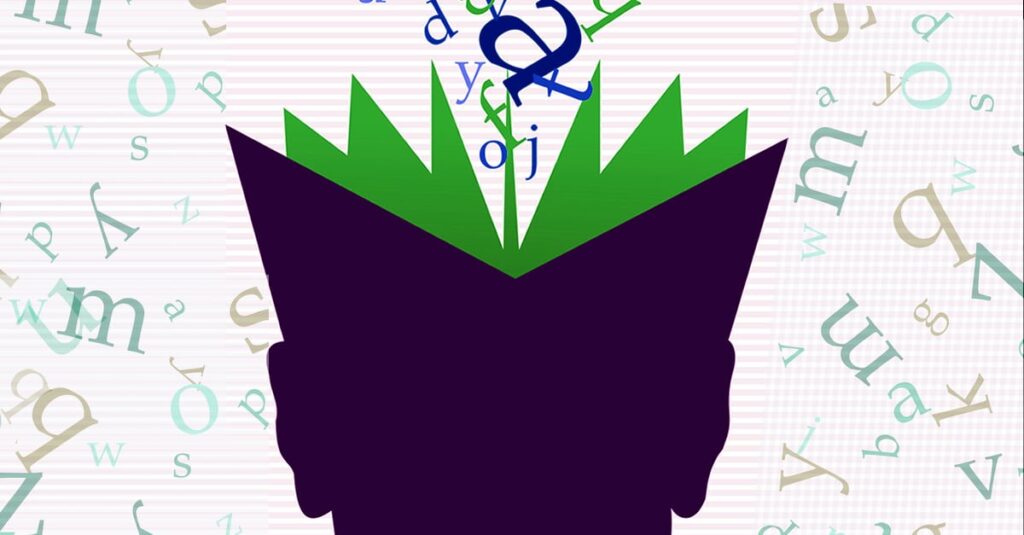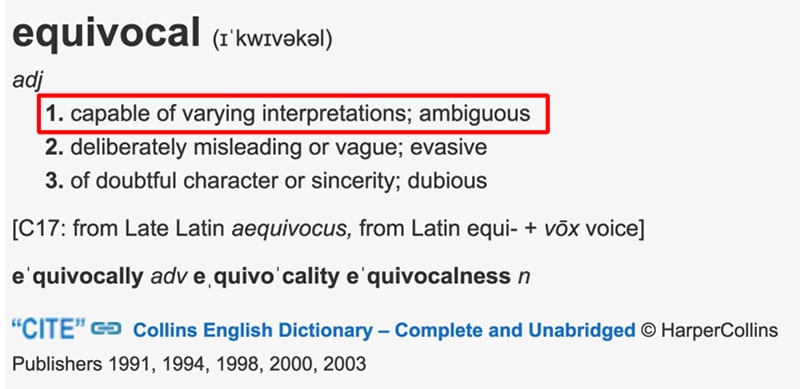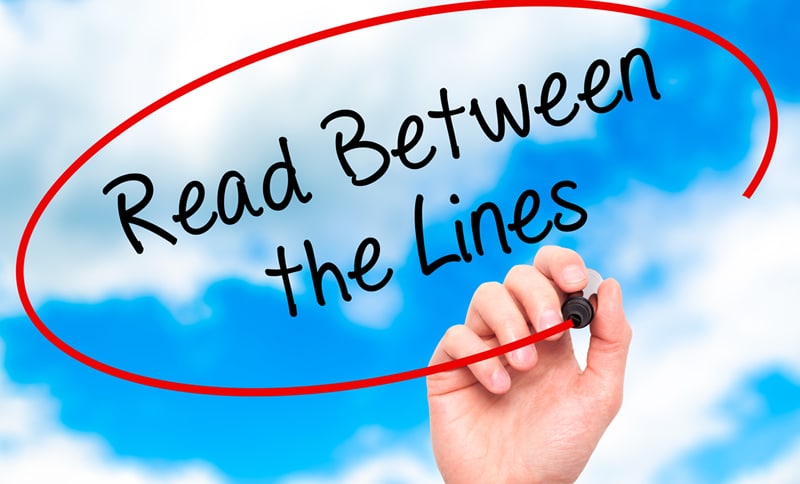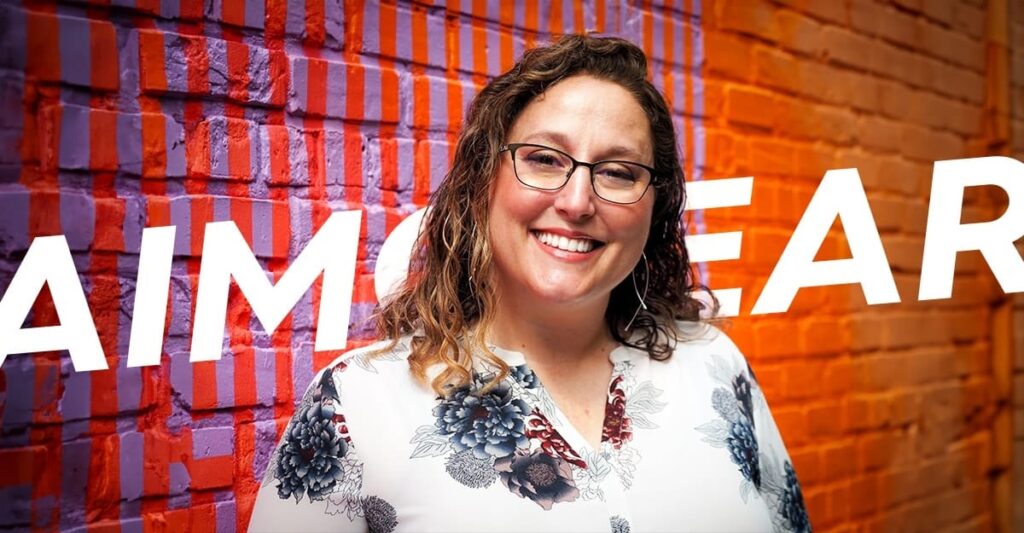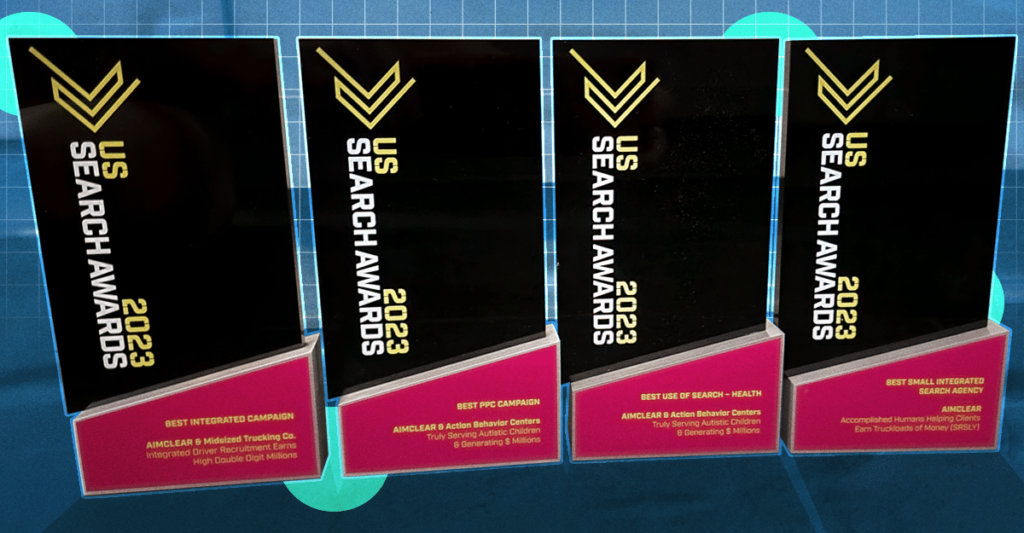The word “equivocation” has negative connotations to some. To equivocate, sometimes means concealing the truth. Obviously, choosing ambiguous language to mislead, prevaricate or hedge may be deleterious. That said, righteous equivocating can be the thoughtful, meticulous writer’s best friend.
While most writers can agree taking a firm stand when appropriate is the right thing to do, this article offers a suggested equivocation-playbook to help make writing more universal and bulletproof. You may be surprised how incorporating strategic ambiguity can lead to more fully “defensible” writing. Sound interesting? All-righty then, read on!
Source Google SERPS
[From here on in this article, we’ll bold in blue equivocal words and phrases.] Let’s analyze the first paragraph is this article.
“The word ‘equivocation’ has negative connotations to some. To equivocate, frequently means to conceal the truth. Obviously, choosing ambiguous language to mislead, prevaricate or hedge may be deleterious. That said, equivocating can be the meticulous, thoughtful writer’s best friend.”
While most writers can agree taking a firm stand when appropriate is the right thing to do, this article offers a suggested equivocation-playbook to help make writing more universal and bulletproof. You may be surprised how incorporating strategic ambiguity can lead to more fully ‘defensible’ writing. Sound interesting? All-righty then, read on!”
For some perspective, read the paragraph above again and in your mind remove bolded equivocation words. Think of challenges potentially averted from readers, absent equivocal positioning.
When a writer is respectfully equivocal, readers may disagree with clauses or in totality, and yet the writing is nearly irrefutable because I don’t actually take much of a stand about anything. There’s some room between the lines for most readers’ views on the topic baked into the verbiage. You see, “equivocal” is not necessarily an all-bad word! Sometimes leaving room in the storyline has positive literary implications.
Source: Collins Dictionary
Consider melding some measure of equivocal language into your writing, perhaps mixed among other UNequivocal stances taken. Benefits include:
Avoiding Factual Mistakes
If I’m citing a data point in an article and not absolutely sure the metric is “9.0,” (though the metric is close to 9.0) I’ll write, “more than 8.3.” The objective here is to equivocate in order to keep the writing defensible, with a higher likelihood readers won’t challenge my facts.
Another example is, “Reading between the lines, the Court seems to suggest shifting sands.” A reader can challenge the writer’s interpretation of the facts but not the facts themselves. Arguably, the approach impels reader-writer conversations about editorial interpretation, but not the facts.
Notice in the previous example, while the phrase, “causes reader-writer conversations” sounds like the writer took a hard position, the prior word “Arguably” sets up the statement as at-least-mostly-equivocal. In other words, sometimes language sounds resolute and is functionally equivocal.
Prevent Offending Readers
Say I wrote, “I tend to get pissed off when an airplane passenger puts the seat back abruptly, carelessly spilling coffee on the tray into my computer.” Using the word “tend,” might indicate a willingness on my part to be open-minded.
A reader may think, “That Marty is really an asshat, it’s my RIGHT to put the seat back whenever I want! There are few rules about airplane seat etiquette,”
The word “tend,” is my defense… not always pissed… I TEND to be pissed. In the narrative, I’ve left room to take another position later. Maybe I’ll change my mind and not be pissed one of these times.
Equivocating allows room for other perspectives, even if the reader does not get it viscerally. We know this as true because there’s technically room in the language. Equivocating also projects humility. Not taking a hardline might seem less threatening to readers.
UNequivocal
In my opinion, the opposite of equivocation (UNequivocal) is to use “STOP Words.” Such words do double duty as a) indicators when to consider equivocation and b) to intentionally take hardline with black and white positioning. After all, sometimes writers just need to take a stand!
Here’s a partial list of UNequivocal STOP-Word-roots: “Is,” “Are,” “Aren’t,” “Should,” “Shouldn’t,” “Will,” “Won’t,” “Wouldn’t, “Couldn’t,” “Can’t,” “Never,” “Always,” “Doesn’t,” “Don’t,” “Must”, “Would,” “No” and “Ought.” These are more authoritative words, commonly associated with taking a firm stand, fewer ands-and-buts-about-it.
Other Colorful E-Words
There are so many ways to not take a stand with equivocating semantics. “It’s been rumored,” “Some would say,” more equivocal version of prior] “Some MIGHT, WOULD, COULD, MAY say,” “Data seems to indicate,” “Some believe,” “It’s reasonable to think,” [more equivocal version of prior] “By extrapolation it may be reasonable to think,” “In my estimation,” “By some measurements,” “It could be assumed,” and “I think” come to mind. Also, stating that something is “My opinion” or “I think” is equivocating by nature. It may be hard for another person to argue that I do not think something!
Hardline Hearing: Perception Is A Funny Thing
One thing I’ve noticed after writing many articles and gauging readers’ reactions in social media, blog comments, emails, etc. is that some readers STILL hear even deep equivocal language as hardline UNequivocal.
Over the years I’ve noted several occasions where I said, “COULD be,” “Some MIGHT say,” or “Data SEEMS to indicate,” only to receive feedback that I was wrong because whatever I was writing about “Won’t,” “Is,” and “Data PROVES.”
The point here is that readers inclined to hear in absolutes may hear as such no matter how much room we leave them to think what they may. Go figure!
Maybe We Should Wrap This Up
While most writers would say taking a firm stand when appropriate is the right thing to do, consider making your writing more inclusive and less committal in wording and tone. You may enjoy how incorporating strategic, positive ambiguity can lead to more fully “defensible” writing.
Images: Copyright Jacek Dudzinski & Cienpies Design
